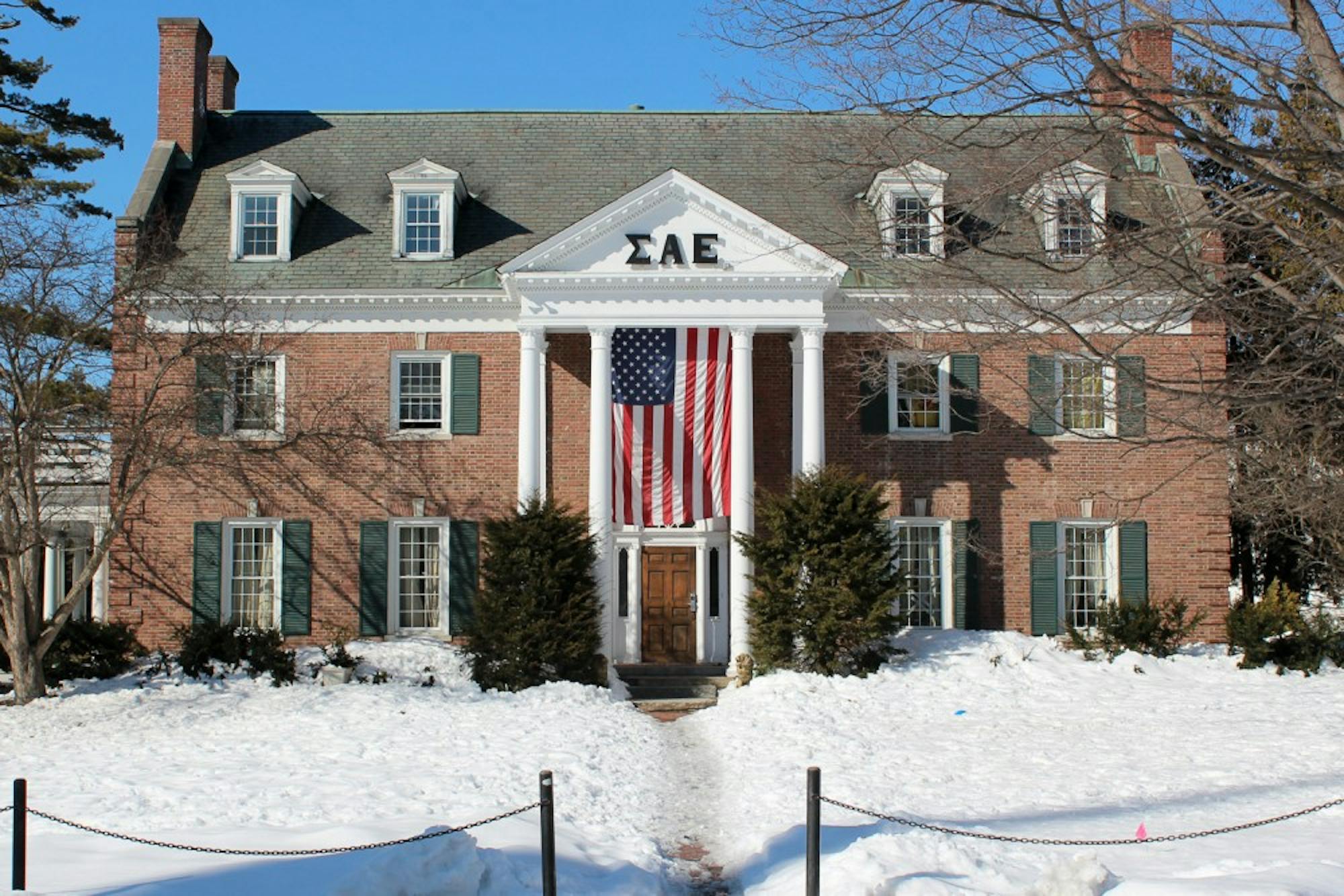Sigma Alpha Epsilon fraternity’s national leadership announced earlier this month that all chapters would no longer allow members to complete a pledging process before fully joining the house. Instead, members must be initiated as brothers within 96 hours of receiving their the bid. All members, not just new recruits, must participate in educational programming called the “True Gentleman Experience.”
Alex Olesen ’14, former president of the College’s SAE chapter, called the new policy a rebranding effort, shifting the organization’s public image from pledge activities to brotherhood.
Brandon Weghorst, associate executive communications director of the national organization, said that negative press in the past few years played some role in the organization’s decision to eliminate pledging, but the decision was primarily made to return the fraternity to its roots of full initial membership. The pledging process, he said, became more popular after World War II.
A loyal and committed membership will now be assembled through recruitment, not the pledge process, he said.
In the past 10 years, nine people have died at events connected to SAE, Bloomberg News reported. In 2011, a Cornell University sophomore died after being tied up and forced to drink during a pledge term activity. In 2012, a freshman member of Arizona State University’s chapter of SAE drowned, leading to the chapter’s suspension. Last year, a freshman at the University of Idaho was found dead after a party at the school’s chapter.
Since the start of this year, at least two chapters of SAE have been suspended.
Dartmouth’s SAE chapter was thrown into the national spotlight in March 2012, when Rolling Stone magazine published an article detailing the alleged pledge term experiences of Andrew Lohse ’12, a former member of SAE.
Since SAE is one of the largest fraternities in the U.S., with about 190,000 living alumni, Weghorst said he believes that other national fraternities will take notice of the change.
SAE’s national and local representatives are limited in the oversight they can provide, Weghorst said, noting that alumni, administrators and members’ families will assist in enforcing the new policy.
“The reality is that we can’t do it alone,” Weghorst said. “Ultimately our members have to embrace the policy and hold each other accountable. We can only step in when people bring it to our attention.”
Though he said the new policy will not solve all the issues faced by SAE and other Greek letter organizations, Weghorst said the fraternity believes that it will address problems like hazing and excessive alcohol consumption.
The prospect of initiation can lead them to engage in reckless behaviors, he added.
Nationally, the response has generally been positive, said Weghorst, though some alumni and individuals at chapters around the country have expressed concern that eliminating the pledging process will make it more difficult to foster loyalty and commitment among brothers.
Current SAE president Daegwon Chae ’15 said in an email that students choosing a fraternity should think about the kind of people they want to associate with above any other consideration.
SAE is not the first fraternity to eliminate the pledge process. Sigma Phi Epsilon outlawed pledging in 1991, which led to both a decrease in chapters and an increase in the fraternity’s overall GPA, the New York Times reported.




